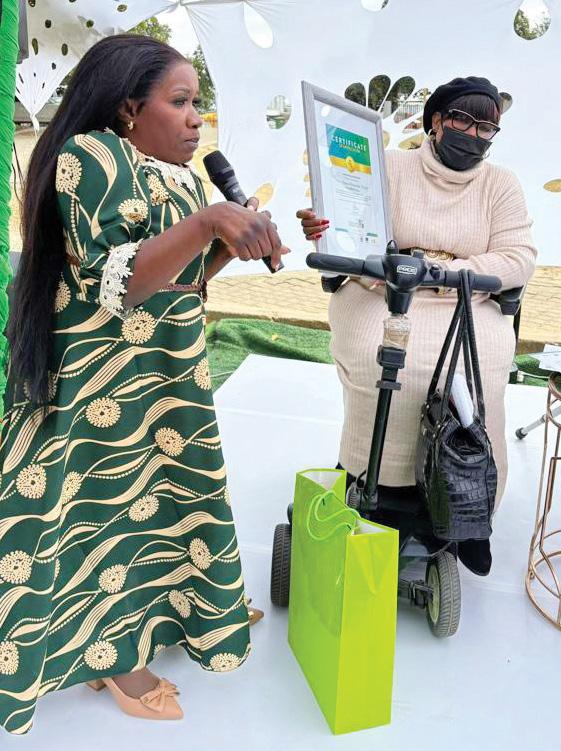
3 minute read
Safe space opens for GBV survivors living with disabilities
The Namibian Association of Differently Abled Women (NADAWO), with support from the European Union (EU), the Ministry of Gender Equality, Poverty Eradication and Social Welfare (MGEPESW) and the United Nations Population Fund (UNFPA), officially launched its new brand identity alongside the official opening of its Peer Support Office facility at the Disability Resource Centre in the heart of Okuryangava, Katutura.
Making its presence known in the national conversation around gender and disability rights, NADAWO’s goal is to provide a safe, understanding environment where women and girls can begin their journeys of recovery and reclaim their dignity in the face of domestic violence, discrimination and emotional hardship. With few safe places to turn to, this facility will serve as a place where healing begins and where power quietly builds, as sometimes the strongest warriors rise not in sirens or spotlights but in whispered stories, shared strength and open doors.
Survivors will have a chance to speak up, be heard and begin the difficult but necessary process of recovery in a safe space. From emotional support to guidance through the legal and social systems, the centre offers more than just care – it offers solidarity.
We want to have volunteers that are GBV survivors who can become role models to others
This milestone marks a significant step in advancing the rights and wellbeing of women with disabilities, particularly survivors of gender-based violence (GBV). The newly opened facility, officiated by NADAWO’s patron, Honourable Alexia Manombe-Ncube, will offer trauma-informed counselling and support services, focusing on healing, empowerment and inclusion. It comes at a time when GBV remains a critical issue in the country, particularly for women and girls living with disabilities, who often face compounded layers of marginalisation and vulnerability.
“We want to have volunteers that are GBV survivors who can become role models to others,” said NADAWO’s national coordinator, Meriam Sam. “Such a person will be able to share what they went through and how they overcame it. They can carry out talks and community discussions, as well as educate others by sharing their own journeys. People with disabilities tend to accept and connect more deeply when they hear a message from someone who has walked a similar path,” she added.
This new facility goes beyond offering emotional support. As part of NADAWO’s broader empowerment programme, the organisation also offers skills development opportunities, including sewing classes, aimed at helping women and girls with disabilities to become independent and self-sustainable.
As part of the launch, certificates were handed out to participants of the sewing project, recognising their dedication and progress. Long-serving NADAWO members were also honoured for their enduring commitment to the cause of disability rights and women’s empowerment.
Maggie Forcelledo Paz













